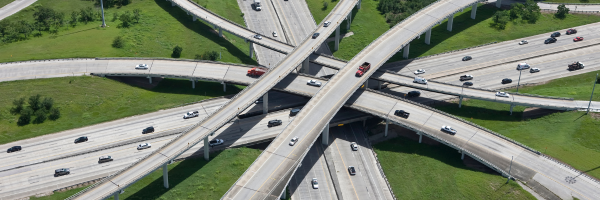PROGRAM SCHEDULE
Ref No: UP 109 Program Name: Adapting Eco-friendly Transportation and Environmental Impact
| Starts | Ends | Venue | Fees | Join Now |
| 15 Apr 2024 | 19 Apr 2024 | Barcelona, SP | $ 5,750 | Registration Closed |
| 15 Jul 2024 | 19 Jul 2024 | Chicago, US | $ 6,750 | Registration Closed |
| 04 Nov 2024 | 08 Nov 2024 | Dubai, UAE | $ 4,750 | Registration Closed |
| 21 Apr 2025 | 25 Apr 2025 | Amsterdam, NL | $ 5,750 | |
| 14 Jul 2025 | 25 Apr 2025 | Chicago, US | $ 6,750 | |
| 03 Nov 2025 | 07 Nov 2025 | Dubai, UAE | $ 4,750 |
PROGRAM DETAILS
Introduction:
The training program on “Adapting Eco-friendly Transportation and Environmental Impact” is designed to provide participants with the knowledge and skills to understand the importance of sustainable transportation and its impact on the environment. With increasing concerns about climate change and environmental degradation, it is crucial to explore eco-friendly transportation alternatives and develop strategies to mitigate the negative environmental impact of transportation systems. This program aims to equip participants with the necessary tools and insights to promote sustainable transportation practices and make informed decisions that contribute to a greener and more sustainable future.
Transportation plays a significant role in shaping our environment and affecting air quality, energy consumption, and greenhouse gas emissions. By adopting eco-friendly transportation solutions, such as public transit, cycling, walking, and electric vehicles, we can reduce our carbon footprint and promote cleaner and healthier communities. This training program will delve into the principles and practices of eco-friendly transportation, explore innovative technologies and policies, and provide participants with practical tools to assess and mitigate the environmental impact of transportation systems.
Learning Objectives:
- Understand the concept of eco-friendly transportation and its relevance to environmental sustainability.
- Explore the environmental impact of transportation systems and the importance of reducing carbon emissions.
- Learn about different eco-friendly transportation options and their benefits and challenges.
- Develop strategies for integrating sustainable transportation practices into urban planning and policy-making.
- Gain insights into the role of technology and innovation in promoting eco-friendly transportation solutions.
Training Methodology:
The training program will employ a blend of interactive lectures, case studies, group discussions, and practical exercises to enhance participants’ learning experience. Real-world examples of successful eco-friendly transportation initiatives will be examined to provide practical insights. Participants will have the opportunity to engage in group activities, scenario-based exercises, and interactive discussions to apply the learned concepts to real-world scenarios. Additionally, guest speakers from relevant industries and organizations will share their experiences and expertise to enrich the learning process.
Target Audience:
This training program is suitable for transportation planners, urban planners, policymakers, environmental professionals, sustainability managers, transportation engineers, and individuals interested in promoting eco-friendly transportation practices. It is relevant for professionals working in government agencies, urban planning departments, transportation consulting firms, environmental organizations, and non-profit entities focused on sustainability and transportation.
Program Content:
Day 1: Introduction to Eco-friendly Transportation and Environmental Impact
- Understanding the significance of eco-friendly transportation for environmental sustainability
- Exploring the environmental impact of transportation systems
- Identifying key challenges and opportunities in promoting eco-friendly transportation
- Analyzing the benefits and barriers to adopting sustainable transportation practices
Day 2: Sustainable Transportation Alternatives and Solutions
- Exploring different modes of eco-friendly transportation (e.g., public transit, cycling, walking)
- Examining the benefits and challenges of each transportation mode
- Analyzing case studies of successful eco-friendly transportation initiatives
- Discussing innovative solutions, such as electric vehicles and car-sharing programs
Day 3: Integrating Sustainable Transportation into Urban Planning
- Understanding the role of urban planning in promoting eco-friendly transportation
- Examining land use and transportation planning strategies
- Developing strategies for integrating sustainable transportation practices into urban design
- Analyzing successful examples of cities that have prioritized sustainable transportation
Day 4: Policy and Governance for Eco-friendly Transportation
- Exploring policy frameworks and regulatory approaches for promoting sustainable transportation
- Discussing the role of government in facilitating eco-friendly transportation initiatives
- Analyzing transportation policies and programs that support sustainable transportation goals
- Identifying challenges and opportunities in policy implementation and enforcement
Day 5: Technology and Innovation for Eco-friendly Transportation
- Understanding the role of technology in advancing eco-friendly transportation solutions
- Exploring innovative technologies, such as intelligent transportation systems and renewable energy integration
- Analyzing data-driven approaches for optimizing transportation systems and reducing environmental impact
- Discussing emerging trends and future directions in eco-friendly transportation






